
Love in an Enchanted Realm
Nine years have passed since the day that curse befell me. Today, for the first time, I return to the ruins of the house where I once lived with my parents.
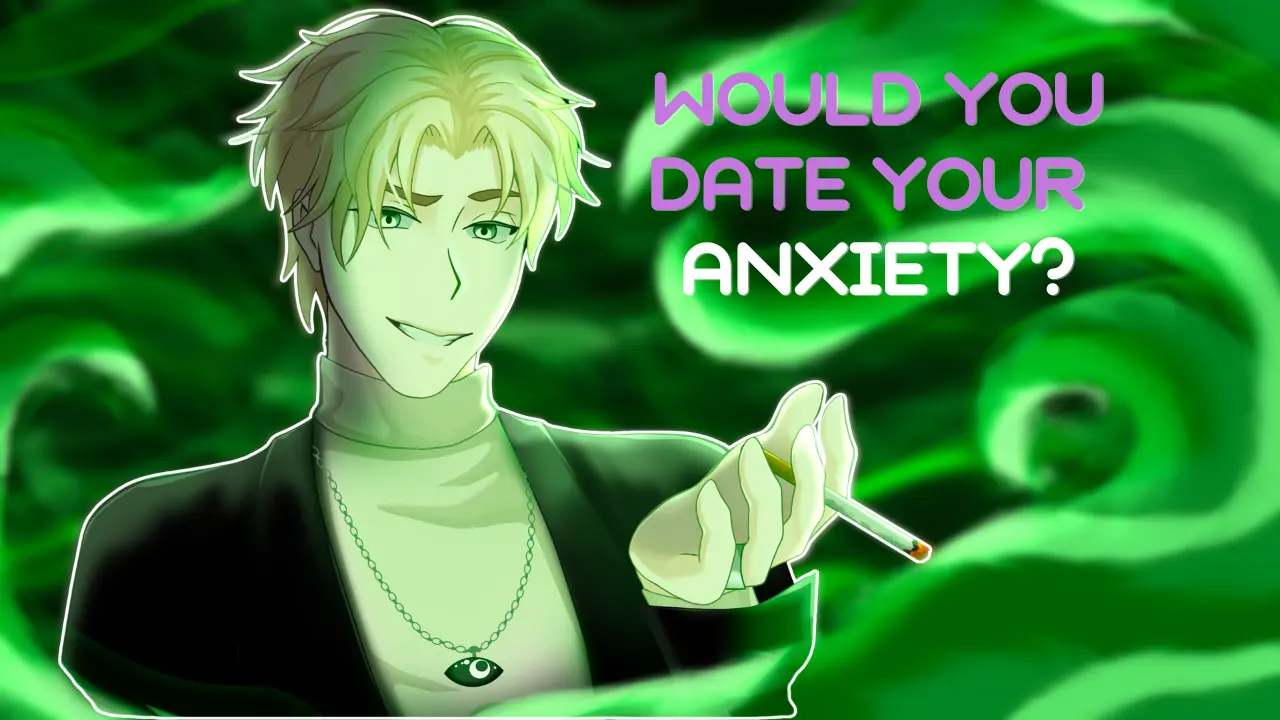
In this special interview, indie developer and writer Chattercap joins podcast hosts Lover’s Lens and Morig to unpack the creative process and emotional weight behind MindMindMind, a visual novel that personifies anxiety as a toxic yandere boyfriend.

Chattercap:” I’m Chattercap and I’ve been doing game development and writing stories on and off since high school, but I started to seriously tackle it in 2022. I usually explore stories dealing with heavier topics like mental health and trauma, and I especially like writing romances with kind of a dark edge to them. I’ve released four completed projects so far, MindMindMind was my third, and I’ve got a few more cooking as we speak…
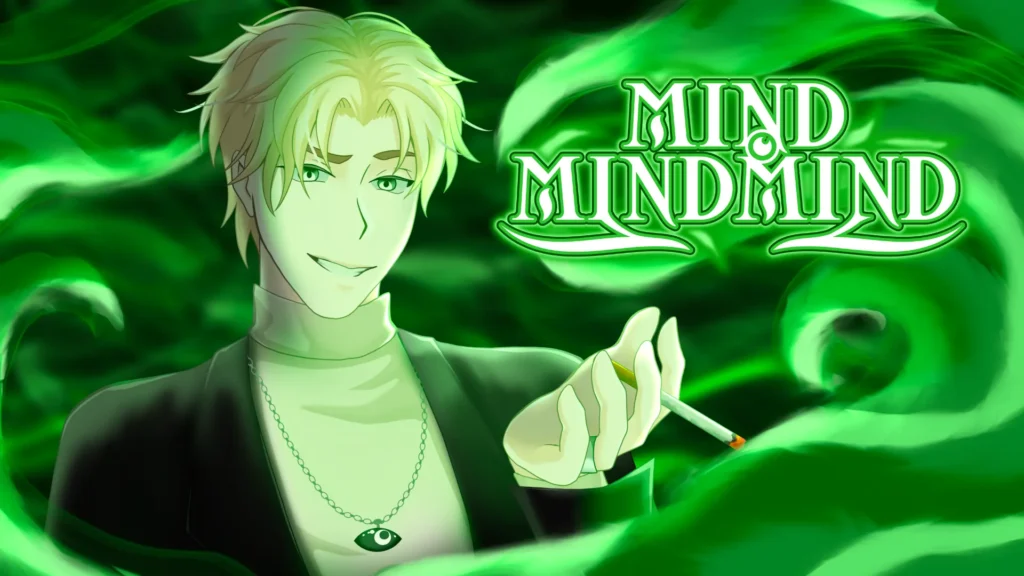
MindMindMind is a game that I came up with when I was chatting with my friend Len on Twitter. I don’t really remember the exact context of it now, but somehow we started talking about anxiety and I joked about how anxiety was kind of like a guy who was constantly standing over your shoulder whispering sad poetry in your ear. Yeah, yeah… So I joked that I should make a game where anxiety is your toxic yandere stalker. And then you woo him until he stops bothering you. And it was really a joke at the time. But the more that I thought about it, the more I was like, hey, that sounds like a really fun idea…
Well, I guess not fun exactly, but fun to make, not necessarily fun to play.”
Chattercap:“So basically, the the premise of the game is that you’re a college student. And the strange guy that—and you don’t know his name, but you’ve named him Geist in your mind—is following you around everywhere for some reason. And it turns out that he’s been following you since you were a child. And you’re not really sure who or what he is…
Geist really doesn’t like that [you’ve made a friend], so he continuously tries to break you down mentally, like convincing you that Kalei hates you and discouraging you from getting closer to him… So the overall theme of the game centers around the experience of anxiety and in particular, social anxiety. Like, I never really outwardly state this, but I think that anyone who plays it who has experienced anxious thoughts kind of just knows.
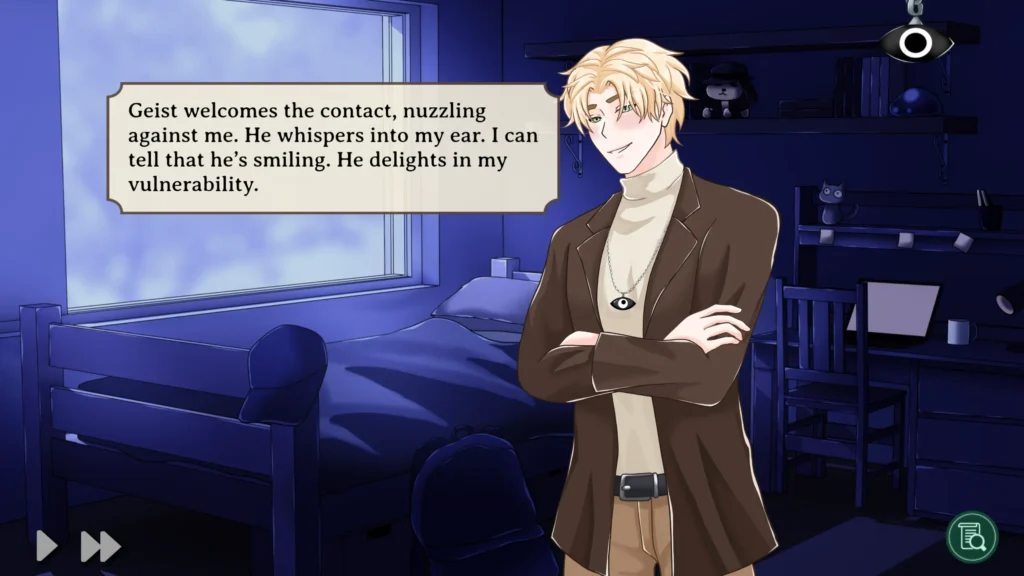
The overall concept is that Geist is your anxiety personified as your toxic boyfriend. So he gaslights and demeans and tries to isolate you at every turn, preventing you from seeking out a friendship or a relationship, if you choose, with a person who genuinely appreciates you.”
Chattercap:“I think that when you’re struggling with things like anxiety, it’s really easy to lose yourself in it, if that makes sense. Like you start telling yourself so many different things, like all your thoughts are just screaming at you and you can’t tell what’s rational and what’s irrational. But I think that if you actually took the thousands of things that your brain is telling you and you like put it into the body of another person and like into their mouth, you’d probably think like, hey, that person sounds kind of crazy, really paranoid, and also rude as hell. And you would not listen to them…
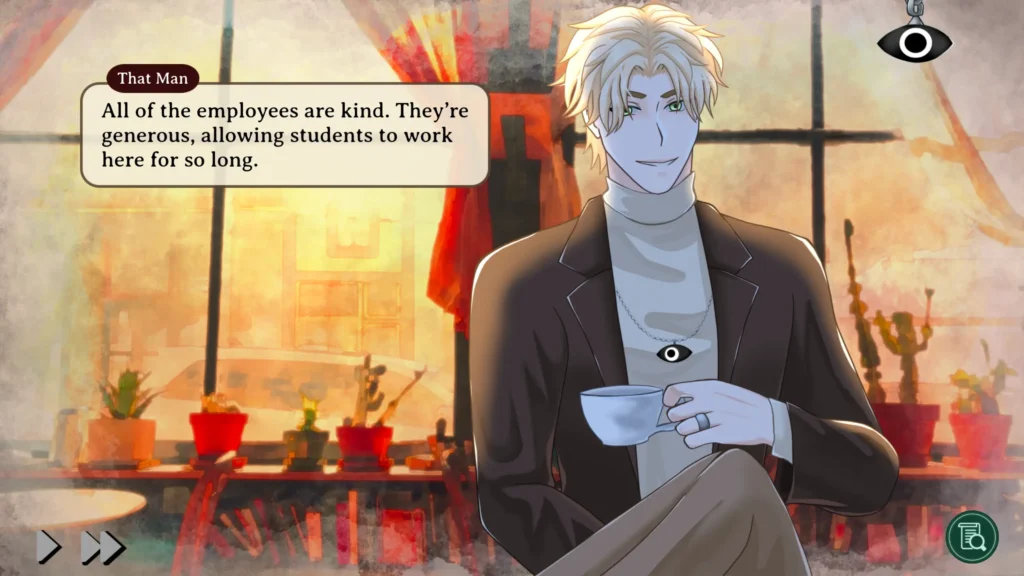
So in a way, I think that externalizing the voice of your anxiety helps you to look at it in a more objective way. And it kind of makes it less scary… When I started getting an anxious thought I would write it down and I would come back to it an hour or two later. And then I would pretend that I hadn’t actually written that anxious thought, that it was just something that had been written by a friend, and then I would go and like look at it and like act like I was giving them advice. And it helped me a lot… Because I think a lot of people should probably treat themselves a little bit more like how they treat a friend.”
Chattercap:“Yeah, so that’s something I struggle with a lot, basically for all of my projects… Honestly, I’m never really sure how to balance content warnings while keeping things spoiler-free… For MindMindMind in particular, I struggled because I didn’t want players to go into it with any sort of expectation. So I didn’t want them going into it thinking that Geist was a representation of anxiety because I think that that would really shift how players saw him…
But at the same time, I knew that… the guy suddenly starts spouting all of these anxiety-inducing things constantly for the entire game, that would be probably pretty bad. So in the end I kind of compromised by like making sure to detail, okay, like these are the sorts of behaviors that the player will be exposed to and making sure to emphasize, okay, these are the themes that the game tackles and the players should be careful if you struggle with negative self-image.”
Chattercap:“Well, I don’t know about the last one, but I think that that was all Shawn, Shawn Mendham, the voice actor. It’s a bit embarrassing for me to admit, but Mind, Mind, Mind was the easiest script that I’ve ever written. I think it took me around a week… Geist’s dialogue in particular was super easy. Because basically all I needed to do was remember things that I told myself when I was younger…
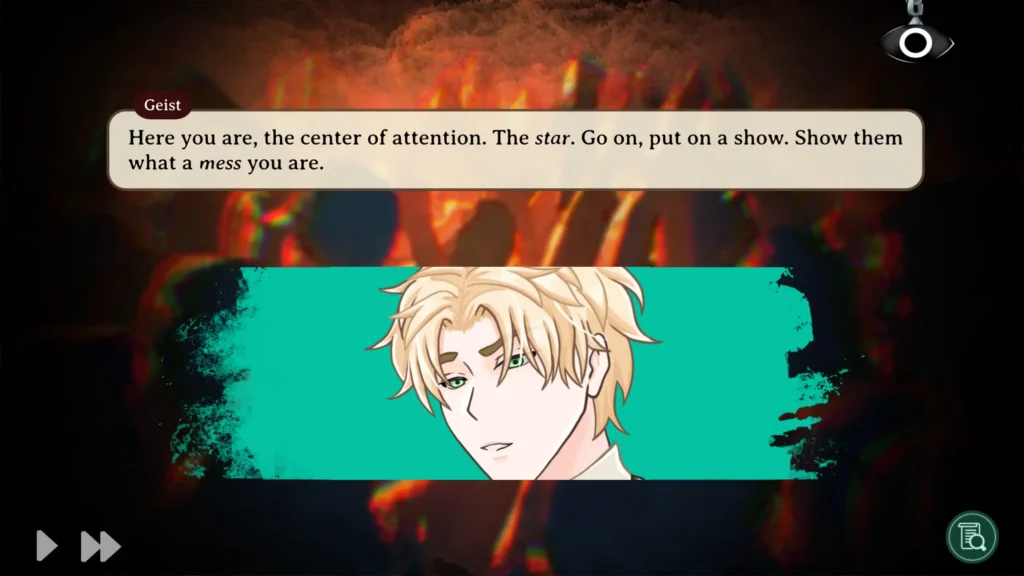
It was a little strange, how easy the writing was… But I had a lot more people… that did mention, Geist really was like their own thoughts talking to them. It made me feel really validated. It’s very reassuring knowing people have the same thoughts as you.”
Chattercap:“I’ll say that when I write, I obviously have an intended message… Kalei’s ending is a little more straightforward—you confront Geist, you free yourself from his influence… you’re taking steps, you’re improving, you’re feeling a little less afraid every day…
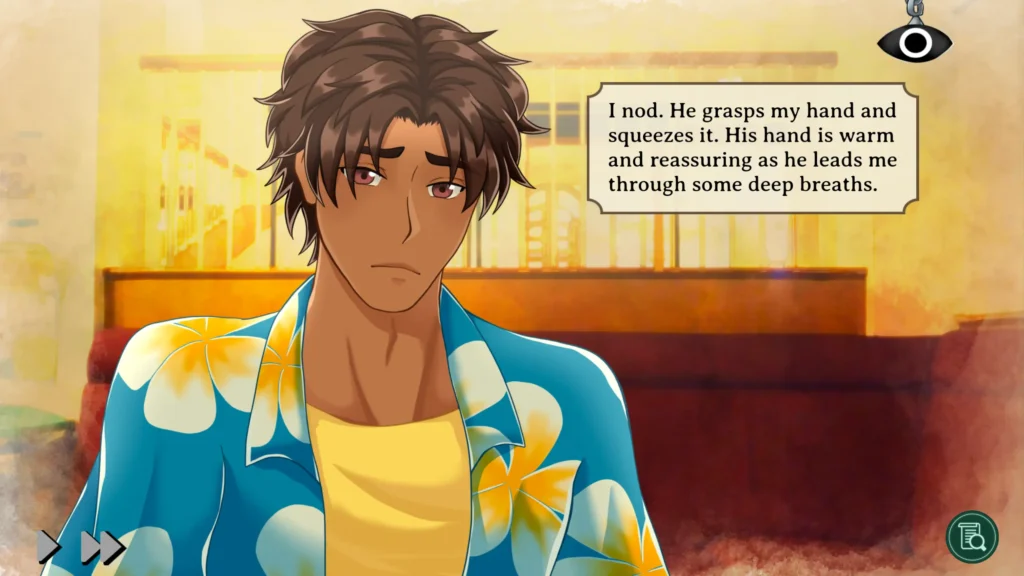
Geist’s ending is actually more ambiguous. You surrender to him… you stop trying… but it’s oddly comforting… I did intend this to be a kind of bad ending… But some players interpreted it as self-forgiveness—just chilling for a day. And I think that’s a valid interpretation… Because with Geist’s ending, I didn’t want players to feel ashamed or punished. Giving in to your anxiety is normal. You don’t defeat it once and for all. It’s gray. And every day is a new day.”
Chattercap:“Yeah, so I’d be super happy to. I always love talking about my projects. I’m currently working on the MindMindMindAndroid port… I also have a couple of projects in the works.
One is a dark fantasy romance project where you’re kidnapped and trapped in a tower by your loyal knight… The other is called My Husband is a Stranger—a dark psychological drama romance visual novel about a marriage that turns from a dream into a nightmare… You retreat to a remote island with your husband, but something’s off. You’re becoming increasingly convinced he’s not the man you married.”
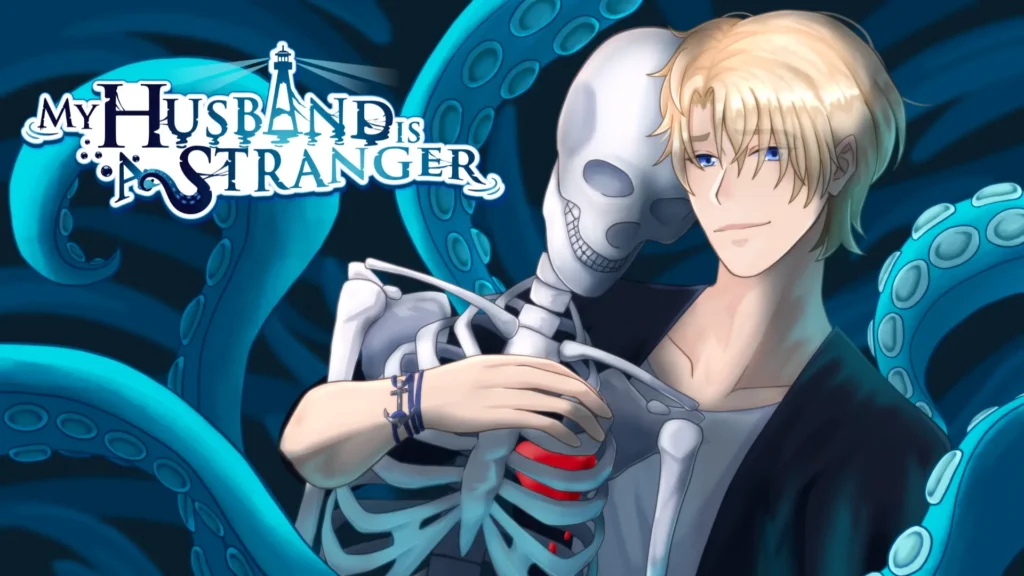
Chattercap:“One thing that I really hope that people take away after finishing MindMindMind is that, you know, it’s all okay, right? Even if you make a mistake, even if you mess something up, even if you don’t take a certain opportunity, even if you lose a friend—there’s always more days, more opportunities, and you can always change yourself at your pace.
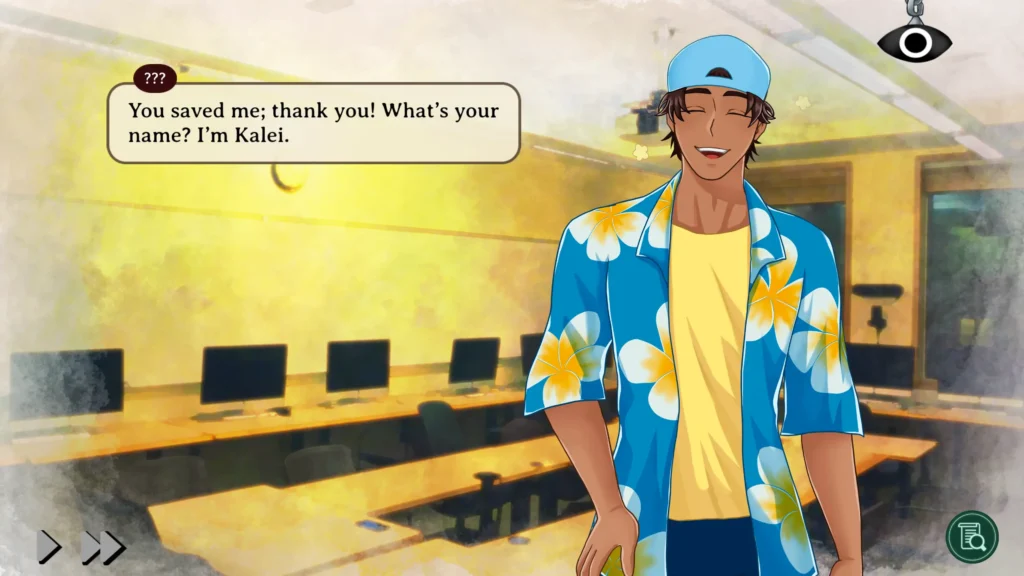
There’s always an opportunity to not let yourself be controlled by your fear.”

In MindMindMind, Chattercap doesn’t just create a visual novel—she builds a mirror for the intrusive thoughts and quiet fears so many of us live with. By giving anxiety a voice, a face, and a terrifying charm, the game dares players to look inward, question the monologue in their head, and maybe—just maybe—push back. Whether you walk away with Kalei’s warmth or slip into Geist’s chilling comfort, the experience stays with you.
Chattercap reminds us that healing isn’t linear, anxiety doesn’t vanish, and courage often looks like the smallest step forward. In turning those inner demons into interactive fiction, she offers something rare: the kind of storytelling that makes you feel seen—and maybe a little stronger, too.
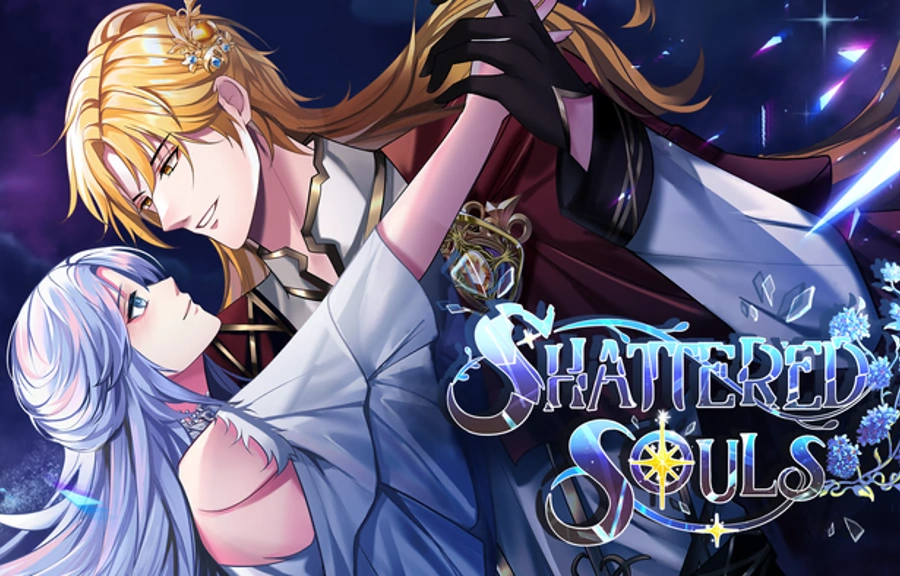
In today’s special episode of the Otome.com podcast, our hosts have the pleasure of speaking with Korina, the creator behind Shattered Souls, a dark fantasy...
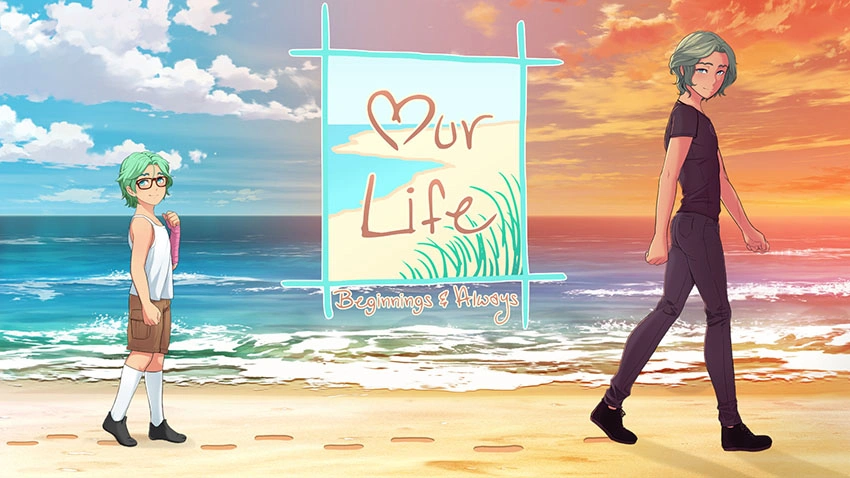
Visual novels have a unique way of immersing players in deeply personal stories, but few manage to capture the essence of life itself quite like...

Eternal Glory stands out not just for its 270,000+ word narrative, but for being the work of one creator, Nocturn. From concept art to programming...